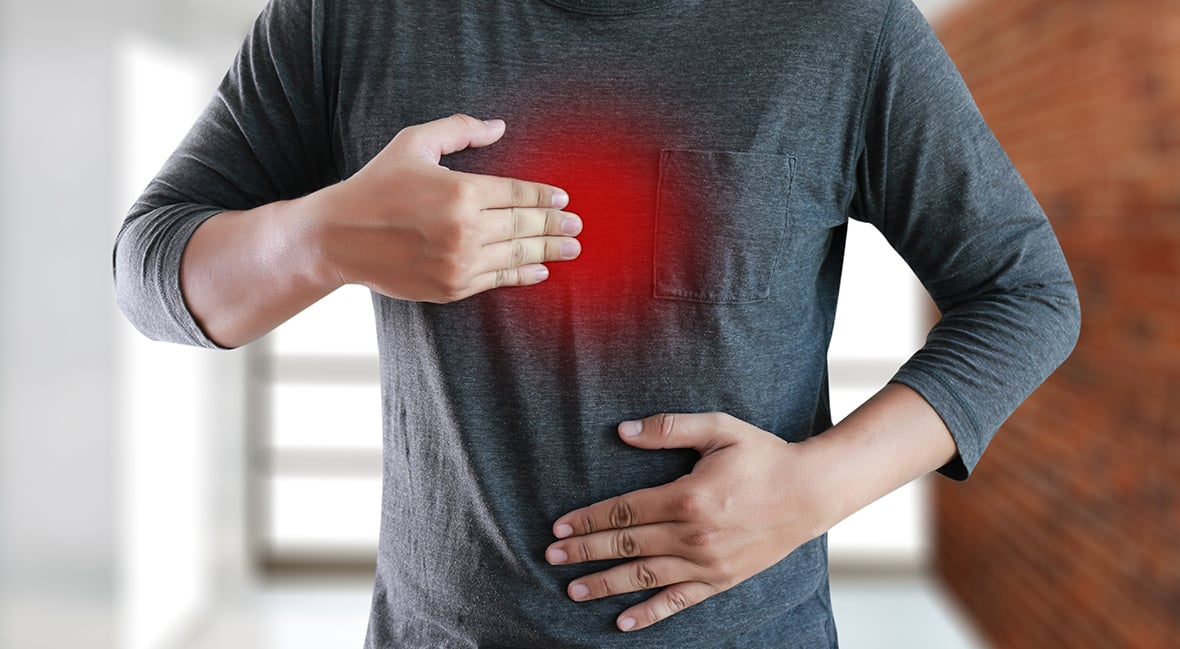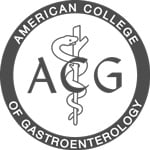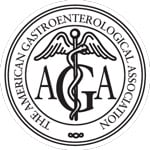In the medical world, GERD is an acronym for Gastroesophageal reflux disease. It’s a digestive disorder related to the lower esophageal sphincter (LES), a ring of muscle between the esophagus and stomach.
Normally, the LES relaxes and opens its ring to allow food to enter the stomach, then closes back up. With GERD, the LES is weakened or moves in an abnormal way that leaves the passageway open for stomach acid to splash back up into the esophagus. Your stomach is equipped to handle the stomach acid, but over time, that same stomach acid could be erosive to your esophagus. The inflammation caused by stomach acid is referred to as acid reflux, or often felt as heartburn.
Symptoms of GERDGERD is a very common affliction. It is estimated that as many as one in five Americans suffer from chronic acid reflux. If you experience any of the following symptoms associated with GERD, schedule a consultation with one of our gastroenterologists to discuss treatment options:
- Heartburn: Occasional heartburn is a common affliction. Whether or not bouts of heartburn qualify for a GERD diagnosis depends upon the severity and frequency of the flareups. If you have mild heartburn that occurs a minimum of twice per week, or moderate to severe heartburn at least once per week, then you may be suffering from GERD and should contact your gastroenterologist to review treatment options.
- Difficulty Swallowing (Dysphagia): Chronic acid reflux can irritate your throat, and even make it difficult to swallow food. Over time, scar tissue can develop in your esophagus and cause the passageway to narrow, which is known as an esophageal stricture. Esophageal damage may also cause your esophageal tissue to mimic that which makes up your intestinal lining. This is called Barrett’s esophagus, and may increase your risk of cancer in this area.
- Vomiting: Frequent burping and indigestion associated with acid reflux may cause nausea, and in some cases, vomiting.
- Respiratory Issues: GERD can contribute to breathing difficulties, such as bronchospasm and aspiration. Especially during sleep, stomach acid that has splashed back into the esophagus may enter the lungs, which may cause asthma reactions or aspiration pneumonia.
- Abdominal Pain: GERD may cause a burning discomfort, instigated by stomach acid, that is felt in the upper stomach and chest, and may extend into the throat.
The discomfort associated with GERD can leave you with sleeping problems and unable to enjoy mealtimes. Luckily, those with GERD have treatment options to consider, such as lifestyle or dietary changes, over-the-counter medication, prescription medication, and when necessary, surgery. If you’re suffering from disruptive symptoms related to GERD, schedule a consultation with one of the experts at Gastroenterology Associates and Long Island Center for Digestive Health.
Gastroenterology Associates specializes in helping restore you and your family to optimal digestive health. We are conveniently located adjacent to Long Island Center for Digestive Health (LICDH), a New York State-licensed non-hospital outpatient facility dedicated to providing high-quality endoscopic and colonoscopic services in a comfortable, welcoming environment. For more information or to schedule an appointment, contact us today!












